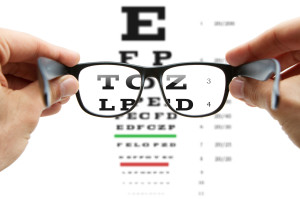There is a lot to be known about LASIK surgery in Washington DC. We hope these will answer your most pressing questions.
Before Surgery
- Is LASIK safe?
Yes, LASIK is exceptionally safe. The screening process effectively filters out those who may have a negative reaction to the procedure. The FDA approved LASIK in 1996, and complications have proven to be exceedingly uncommon. - Is LASIK covered by insurance?
Insurance companies typically consider LASIK a cosmetic surgery, and therefore do not insure such procedures. Luckily, LASIK surgery is relatively inexpensive when compared to other surgeries, on average around $2,500 in total.
During Surgery
- Are both eyes done together?

Typically, yes. LASIK is a surprisingly quick procedure, taking around 15 minutes per eye. Because the procedure is very safe and simple, there is no need to consume unnecessary time by conducting the procedure separately for each eye. - Will I feel anything during the procedure?
Prior to the procedure, the Washington DC LASIK physician will offer eyedrops that will numb the eyes. While you may feel pressure on each eye for less than a minute, the procedure is not painful.
After Surgery
- Can I drive home after the procedure?
For the remainder of the day of your LASIK surgery, you should not drive. Therefore, you will need to have someone drive you home following the procedure. - How long does recovery take?
For a few hours following the procedure, you may experience watery eyes, sensitivity to light, and slight discomfort of the eyes as the numbing wears off. Some patients report that a nap after the procedure helps them elude these side effects. - Will I need follow-up care?
Recipients of LASIK in Washington DC are usually asked to come in for around 3 follow-up appointments. You can expect to come in the day following the procedure, the week after that, and around three months later. Your experience may vary depending on your situation and doctor. - How long do the effects of LASIK last?
For all intents and purposes, the results of LASIK can be considered permanent. Although patients may experience regression in the decades following the procedure, the regression tends to be miniscule compared to the improvements. Around 6% of recipients, however, do end up needing LASIK enhancement surgery within 10 years of the initial procedure, which then tends to be adequate. Those who undergo the procedure after 60 tend to experience less regression than younger recipients.
For any additional questions you may have, contact our Washington DC LASIK physicians for a free consultation.

